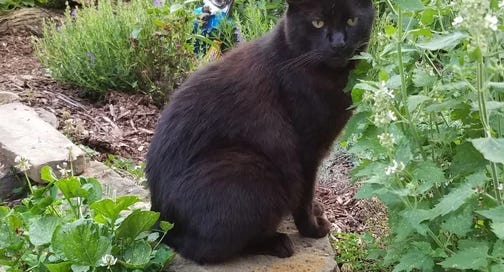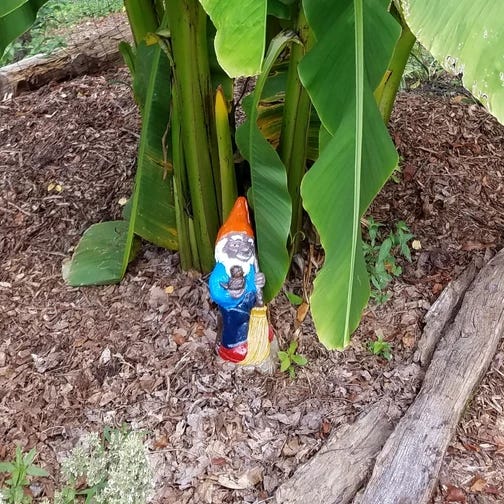Gnomes, a mysterious and marginalized minority
Though the fact of their existence is shocking to many of us, it's important to acknowledge the existence of gnome-haters. Gnome-haters often hold negative opinions because they blame gnomes for garden mischief that is usually committed by other culprits such as raccoons, voles, and leprechauns. If respected and well provided for, gnomes carry out many useful services in the garden. Taking the time to understand this mysterious class of creatures and their needs will lead to increased delight in your garden.
Gnomes often form bonds with cats, gently but firmly insisting they not poop in beds, and directing them to the choicest catnip. They are also excellent caretakers of turtles. With a happy gnome in the garden you will notice more vibrant, longer lasting blooms, and vegetables bursting with nutrients.
It's important to note that gnomes, while quite territorial and protective of "their" garden, are also social beings and need occasional interaction to maintain good mental health. Finding other gnomes in your area and arranging social visits will contribute immensely to your gnomes contentment. It's best to limit visits to 30 minutes to avoid nasty fights, especially if your gnome is prone to broom jealousy.
Gnomes are sensitive creatures and expect (and deserve!) respect. Gnomes consider the terms "concrete," "cement," and "lawn art," highly offensive. Gnomes prefer the term "curated statuary" when referring to the gnome community. They hate to be confused with pixies, trolls, and leprechauns, and if they hear these words, expect trouble. Reports of tomato patches with one bite taken out of each tomato are common. There are also reported (but unverified) accounts of gnomes urinating in bird baths.
When treated with respect gnomes are marvelous additions to any garden. Just use common sense and the rewards will be huge.







